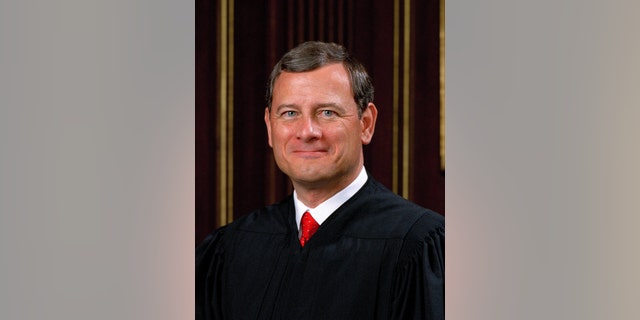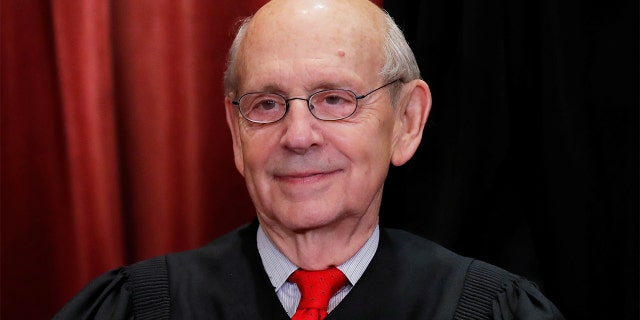Fox News Flash top headlines for June 23
Fox News Flash top headlines are here. Check out what’s clicking on Foxnews.com.
The Supreme Court in a 6-3 decision Wednesday ruled that a California law allowing union organizers access to farms to organize workers is unconstitutional because it in effect deprives farm owners of their property rights without just compensation.
The six Republican-appointed justices ruled for the businesses while the three Democrat-appointed justices dissented, siding with state officials who defended the pro-union rule. It represented a show of force from the conservative majority on a hot-button political issue after a recent string of largely unanimous or 8-1 rulings.
“The right to exclude is ‘one of the most treasured’ rights of property ownership,” Chief Justice John Roberts wrote in the majority opinion. “Accordingly, the growers’ complaint states a claim for an uncompensated taking in violation of the Fifth and Fourteenth Amendments.”
Roberts was specifically citing the Fifth Amendment’s Takings Clause, which says private property can’t be “taken for public use, without just compensation.”

Official portrait of U.S. Supreme Court Chief Justice John G. Roberts. The chief justice wrote an opinion for the court Wednesday that was a blow to union power in California.
The California law allowed union organizers access to growers’ property for organizing activities up to three hours per day during non-working hours like lunch and before and after work, for up to 120 days per year. Lawyers for the state defended the 1975 law on the grounds that it did not do significant harm to farmers’ businesses.
“There is no indication that the access regulation poses a significant problem for California farms,” the state said in a brief. “Although there are more than 16,000 agricultural employers in California, petitioners’ statistics indicate that union organizers invoked the regulation to access the property of just 62 employers in 2015.”
And lower courts, Roberts noted, said the California law did not violate the Fifth Amendment because “it does not allow for permanent and continuous access ’24 hours a day, 365 days a year.'” But the six GOP-appointed justices disagreed.
“That position is insupportable as a matter of precedent and common sense. There is no reason the law should analyze an abrogation of the right to exclude in one manner if it extends for 365 days, but in an entirely different manner if it lasts for 364,” Roberts wrote.
The three dissenting justices, led by Justice Stephen Breyer, argued that there was no violation of the Takings Clause because nothing was taken by the California government. The government issued only a garden variety regulation, they said.

U.S. Supreme Court Associate Justice Stephen Breyer is seen during a group portrait session for the new full court at the Supreme Court in Washington, U.S., November 30, 2018. Breyer and the three Democrat-appointed justices dissented from a decision Wednesday that represented a blow to union power. (REUTERS/Jim Young)
“It is important to understand… that, technically speaking, the majority is wrong,” Breyer wrote. “The regulation does not appropriate anything. It does not take from the owners a right to invade (whatever that might mean). It does not give the union organizations the right to exclude anyone. It does not give the government the right to exclude anyone. What does it do? It gives union organizers the right temporarily to invade a portion of the property owners’ land.”
NCAA DISMISSES KAVANAUGH’S BLISTERING OPINION AFTER SUPREME COURT RULING
Breyer added: “The regulation regulates (but does not appropriate) the owners’ right to exclude.”
Nothing in the court’s precedent, Breyer added, shows “that compensation is automatically required for a temporary right of access.”
Right-leaning court-watchers approved of the court’s ruling. Carrie Severino, the president of the conservative Judicial Crisis Network, said the court’s ruling “stands up for fundamental liberty and property protections that are at the heart of the Constitution.”
The libertarian Pacific Legal Foundation (PLF), which represented the growers in the case, said the ruling is a victory not only for farmers in California but property rights more generally.
“Today’s ruling is a huge victory for property rights. The decision affirms that one of the most fundamental aspects of property is the right to decide who can and can’t access your property,” PLF senior attorney Joshua Thompson said.
CLICK HERE TO GET THE FOX NEWS APP
Left-leaning commentators, however, warned that the Supreme Court’s decision could have far-reaching consequences.
“This is a very extreme decision!” Slate writer Mark Joseph Stern said. “In short, the Supreme Court’s conservative supermajority just undid one of César Chávez’s greatest accomplishments. This is an incredibly dark day for organized labor. A complete and total blowout against unions.”
Harvard Law Professor Niko Bowie added that Roberts’ ruling could produce a litany of unintended consequences.
“Antidiscrimination laws ‘take’ private clubs’ ‘right to exclude’ women. They ‘take’ photographers’ ‘right to exclude’ unwanted clients. They ‘take’ the ‘right to exclude’ from Uber drivers, short-term rental owners, and other small businesses,” Bowie said. “It is not difficult to describe any law as “taking” something. The conservative deregulationists on the Supreme Court just said the government must pay for what it regulates.”



Comments